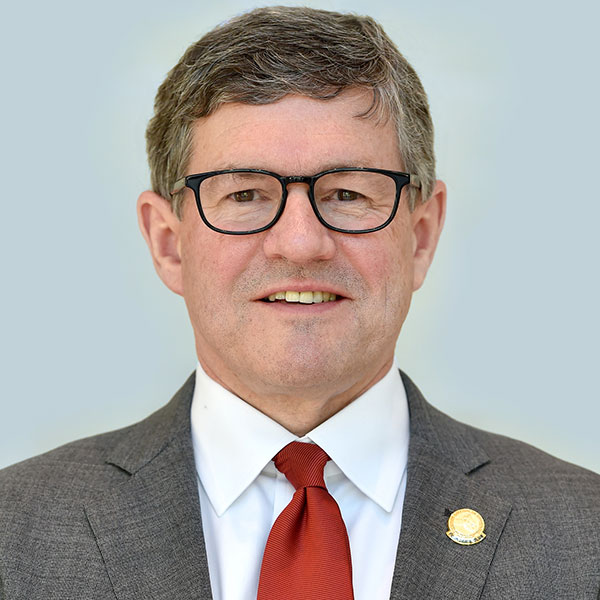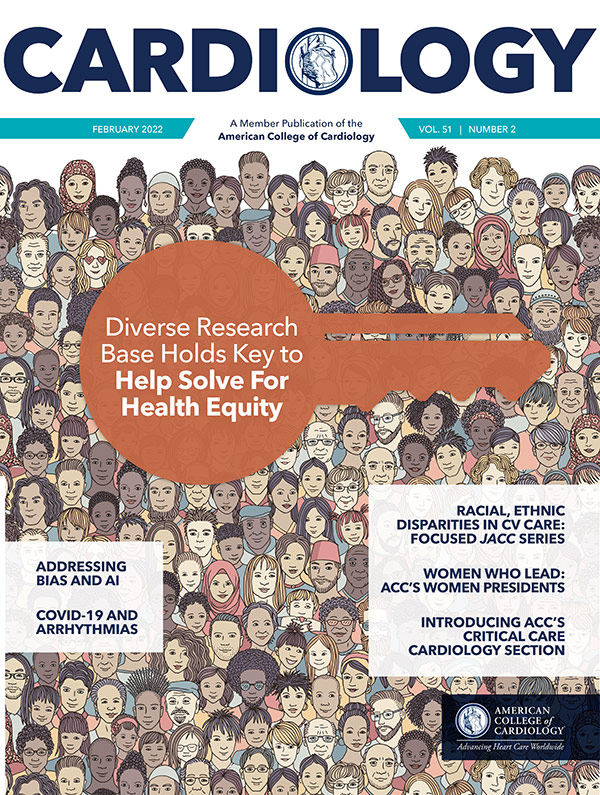Guest Editorial | From Crisis Comes Opportunity

A recent conversation on the Board of Governors (BOG) listserv highlighted the very real impacts of the current COVID-19 surge on hospitals, practices and clinicians and underscored the importance of the College's leadership in helping the entire care team to navigate the myriad of challenges including patient outcomes, health equity, clinician well-being and workforce stressors.
In my own state of Indiana, which ranks not so proudly in the bottom 20% of the country in terms of COVID vaccinations, statewide case numbers are at their highest ever. Our ICUs are at more than 90% capacity, with about 40% of cases due to COVID in unvaccinated individuals. We have had to defer and/or reduce scheduled procedures and diagnostic testing due to limited staff and hospital beds. The most troubling statistic, and one that is also noted by BOG leaders across the country, is the "Number Furloughed" (i.e., "absentee-ism"). Most of these individuals, numbering at more than 500 as of Jan. 6, are frontline health care workers, the loss of whom is compounding and multiplicative.
Even with shorter work absences and quarantine periods (if that is indeed wise), the U.S. health care system operates so closely at the margins there is no built-in resiliency to accommodate such unanticipated stressors to the current care delivery model. Accordingly, one physician's absence now means a cascade of delay, rescheduling and deferred care. Same is true with the echo tech who is out, the ICU nurse who is infected, even the quarantined clerical staff who would otherwise be doing prior authorization, scheduling and logistics. Succumbing to this pressure, some systems are starting to relax staff vaccine requirements – not the right message but representative of desperation.
The consequences of COVID on systems of care, clinicians and patients are not unique to the U.S. Our colleagues around the world report the same challenges. Internationally there may be added, future impact as many trainees have had to delay or interrupt their fellowships to deliver frontline general COVID-related medical care.
The public has no window into this perfect storm and do not understand the collateral damage COVID has ravaged. Just as COVID exposed the impact of social determinants of health on clinical outcomes and pulled back the thin veil on health inequity, so too has it exposed the vulnerabilities of an antiquated, ill-prepared, fractionated, poorly aligned national system of care that even in the best of times is limited in its ability to successfully meet the challenge of "routine" care.
Such "bread and butter" care must now take a back seat to the prevalence of COVID. We are learning to "chew gum and walk at the same time" to manage COVID and "routine" care simultaneously, but it is a slow and nearly impossible task with staff illness and attrition. Not unexpectedly, clinician well-being has gone from bad to worse, which will have the long-term effect of driving many skilled and experienced care team colleagues away from the profession, not to mention causing incoming health care professionals and team members to rethink and redirect their career paths.
But from crisis comes opportunity. Although individually we may have only limited ability to alter the course of the pandemic, collectively within ACC, and more broadly as the house of medicine, we can work to address the current (hopefully short-term) clinical issues and more importantly characterize and fix the more fundamental problems in our health care infrastructure. The situation seems daunting, but the long journey begins with the first step. In that spirit, the ACC has been front and center in supporting the entire cardiovascular care team through the development of actionable knowledge and useful clinical tools to meet the challenge posed by COVID. These include:
- The COVID-19 Hub, offering the latest in science, clinical guidance, expert commentary, educational resources and peer-reviewed research.
- Sustained and proactive advocacy efforts aimed at protecting patient access to care and ensuring the safety and well-being of clinicians.
- A robust Innovation Program focused on leveraging new technologies that can help transform care.
- Operational and Non-Clinical Competencies to promote efficiency, reduce burdens of practice, and increase access to care.
- A comprehensive Diversity and Inclusion Hub providing a roadmap and resources for growing diversity and inclusion within the profession and advancing solutions to health equity.
- Quick access to individualized internal and external clinician well-being resources.
The time is now to take stock of the pressure our patients and colleagues are under. Despite the seemingly gloomy conditions, we should make good use of the tools available to us, refine and update them, and capitalize on this hopefully once-in-a-lifetime experience to take on the next challenge and to deliver on the College's mission to truly "transform cardiovascular care and improve heart health."
Learn more about the College's COVID-19 efforts and access the latest in research, tools and more at ACC.org/COVID19.

This article was authored by ACC Vice President Edward T. A. Fry, MD, FACC.
Clinical Topics: Cardiovascular Care Team, COVID-19 Hub, Dyslipidemia, Prevention, Lipid Metabolism
Keywords: ACC Publications, Cardiology Magazine, COVID-19, Social Determinants of Health, Bread, Cultural Diversity, Fellowships and Scholarships, Health Equity, Indiana, Leadership, Pandemics, Prevalence, Prior Authorization, Quarantine, Wetlands, Health Personnel, Patient Care Team, Nurse Practitioners, Diagnostic Techniques and Procedures, Monitoring, Physiologic, Vaccination, Physicians, Workforce, Hospitals, Wearable Electronic Devices, Butter, Vaccines, Intensive Care Units, Artificial Intelligence
< Back to Listings


